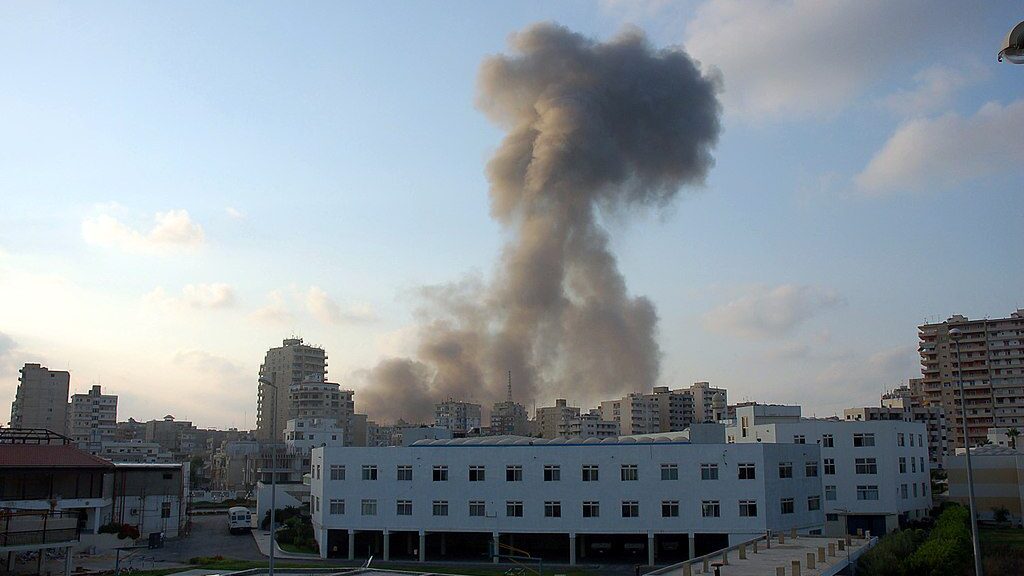
Dust rises after the impact of bombs dropped during an Israeli Air Force airstrike on Tyre, Lebanon
Photo: Masser, CC BY-SA 2.0, via Wikimedia Commons
A ceasefire arrangement between Jerusalem and Beirut came into effect this morning, Wednesday, November 27th. The Israeli cabinet voted 10 to 1 to support the deal.
PM Netanyahu set out how the truce arrangements, confirmed last night, create three key opportunities: to concentrate on Iran and its nuclear threat, to rest and re-equip Israeli soldiers, and to further isolate Hamas.
Broadly, the agreement is supposed to improve on UN Security Council resolution 1701, which was the basis for ending the 2006 Israel-Hezbollah war. However, its critics within Israel see the ‘peace deal’ as a wasted chance to further degrade the terror infrastructure of Iran’s Beirut-based Islamist proxies, who have backed the October 7th Hamas pogrom with a campaign of rocket attacks lasting more than one year.
Polling of Netanyahu’s supporters indicates that more than 80% opposed a deal, with one national poll showing 32% against. In a preemptive response to his critics, Netanyahu’s national address highlighted what happened during a previous temporary pause in fighting in Gaza:
I hear the claim that if we enter into a ceasefire, we will not be able to attack and will not be able to renew the war. I remind you, that is exactly what they said when we had a ceasefire in Gaza to release the hostages. They said we wouldn’t go back to fighting, but we did.
Blame for the disadvantageous truce terms lies far outside Jerusalem. While Netanyahu reserved the right to retaliate as part of the peace deal, Western leaders would prefer Israel fight with one hand tied behind its back—or not fight at all. The most striking example of Western pressure to restrain Israel can be seen in French support for the International Criminal Court’s arrest warrant targeting Netanyahu and his former defence minister for alleged war crimes.
Although U.S. President Joe Biden has called the warrant ‘outrageous,’ he issued a joint statement with French President Emmanuel Macron to say that
The ceasefire deal for Lebanon will provide the conditions needed for a return to calm in the country, and France and the United States will both work to ensure the ceasefire is fully implemented.
The Biden administration says it is “fully expecting adherence” to the agreement from both Israel and Hezbollah. To enforce this, U.S. and French forces—although not ‘combat troops,’ apparently—will join the current “tripartite mechanism,” alongside the ineffectual UNIFIL force, created after the 2006 war. Together with the Lebanese army, they will be instructed to prevent the reemergence of Hezbollah as an armed group south of the Litani River, about 16 miles (25km) north of the Israeli border. Yet France’s approach to Israel’s self-defence should prompt caution on the part of the Israelis.
As if harking back to the French mandate that ended in October 1945, Macron even instructed Lebanon to hold a general election, ironically to “allow the restoration of Lebanon’s sovereignty.”